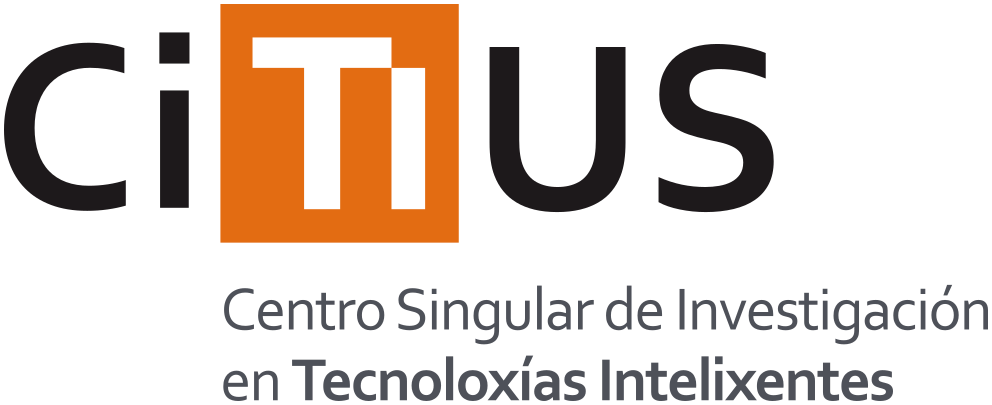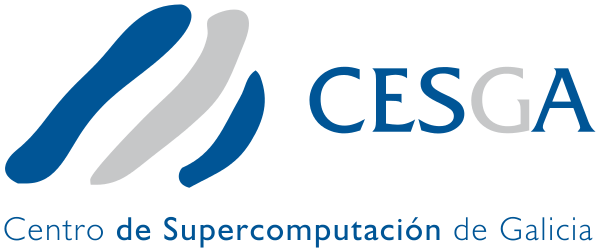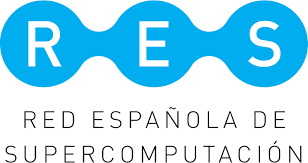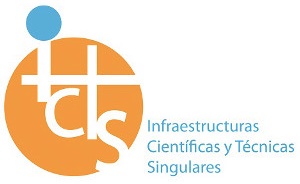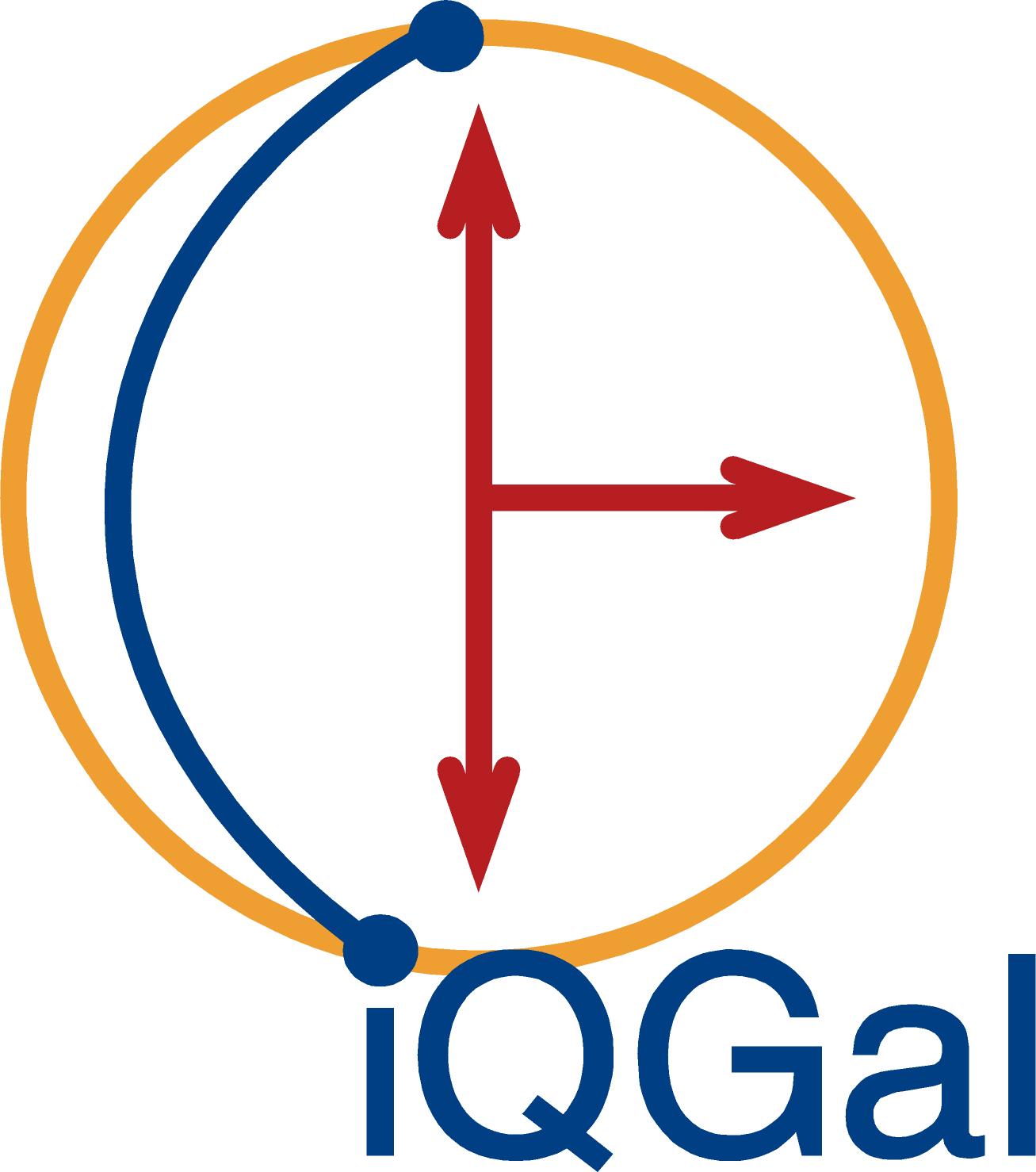workshop.qchpc2019@usc.es
Quantum Computation has emerged as a new paradigm to solve certain problems that are beyond reach for conventional programming. Although still at its dawn, possible fields of application have been identified and tackled with promising results.
If confirmed, the recent announcement of the achievement of Quantum
Supremacy will boost the activity in this field to limits not yet to be
foreseen.
This workshop focusses on the relations between Quantum Computation (QC) and High Performance Computing (HPC) and the synergies that may appear between them for use in the scientific and technical fields. Ongoing initiatives of implementation will be presented by active researcher centres and companies. Also upcoming developments will be accounted for, mainly connected with Quantum Machine Learning strategies.
Carmen G. Almudever (Delft University of Technology ) Carmen G. Almudever is an Assistant Professor at the Quantum and Computer Engineering Department and QuTech of Delft University of Technology. She holds a PhD in Electronic Engineering from the Technical University of Catalunya (UPC BarcelonaTech), Spain. During her PhD she worked on “beyond-CMOS” devices as well as on novel reconfigurable architectures and dynamic computing systems. In 2012 she received a fellowship from Intel (Doctoral Student Honor Programme). In 2014 she joined QuTech at TU Delft to work on the definition and implementation of a scalable quantum computer architecture. She is currently one of the PIs of the Intel-Qutech collaboration and a co-PI of an Open Technology Program project (Dutch funding). Her research focuses on different aspects of the quantum system stack including quantum programming languages and compilers, quantum instruction set architecture and microarchitecture, quantum error correction and mapping of quantum algorithms
Full-stack challenges of bridging quantum chips up to scalable quantum co-processor heterogeneous architectures Quantum computers promise to solve a certain set of hard problems that are intractable for even the most powerful current supercomputers. Remarkable progress has been made in recent years in quantum hardware, and quantum computation in the cloud is already a reality offering small quantum processors that are capable of handling basic quantum algorithms. Main IT companies like Google, Intel, Microsoft and IBM and numerous research groups are working on building the first universal quantum computer. Building such a quantum system requires bridging quantum algorithms and quantum processors. This talk will address first the state of the art in quantum computing, emphasizing the main challenges that include improvement and scalability of quantum processors, classical control electronics at (possibly) cryogenic temperatures and definition of a heterogeneous quantum computer architecture. Then, a discussion on the system architecture focusing on making quantum computing fault-tolerant and the compilation of quantum circuits will be presented. In the last part of the talk, I will provide my vision on how the research community could accelerate the process towards building such a scalable quantum machine and possible applications.
Federico Carminati (CERN ) Federico Carminati is investigating Machine Learning and Quantum Computing for High Energy Physics in the CERN openlab. After getting his Master in Physics at the University of Pavia, Italy in 1981 he worked at Los Alamos and Caltech as particle physicist before being hired by CERN in the Data Handling Division. He was responsible for the CERN Program Library and the GEANT detector simulation programme, the world standard High Energy Physics code suite in the 80’s and 90’s. From 1994 to 1998 he worked with Nobel Prize Carlo Rubbia at the design of a novel accelerator-driven nuclear power device. From 1998 to 2013 he has been Computing Coordinator of the ALICE experiment at LHC. In 2013, he obtained a PhD in physics at the University of Nantes (France). From 2013 to 2017 he has been leading the development of the new generation of particle transport code. Federico is also a certified pet therapist, a group psychoanalyst, didactical psychoanalyst at the Société pour la Psychanalyse Multidisciplinaire and member of the Institute for Psychoanalysis Charles Baudouin in Geneva.
Quantum Computing for High Energy Physics Applications With the commissioning of the upgraded LHC-HL machine, High Energy Physics will face a large shortage of computing resources that has been evaluated between a factor 10 and 100. It is therefore necessary to explore all avenues that can lead to an improvement of the performance of HEP software. Quantum Computing has the potential to offer unprecedented performances, but at the price of a fundamental rethinking of our algorithms and, to an extent, computing model. This talk will first introduce the principles of Quantum Computing. It will then present some possible avenues to exploit Quantum Computing for High Energy Physics research and will expand on the projects currently under way or in preparation in connection with the HEP physicist and the major technology providers. In particular we will expand on the areas where we see the greatest potential for “Quantum Dominance” and we will consider what could be the impact of Quantum Computing on the HEP computing model. We will also point out what are the possible usage outside the realm of HEP of the proposed techniques and applications.
Marcos Curty (UVIGO ) Marcos Curty obtuvo el título de Ingeniero de Telecomunicación en 1999 y el de Doctor en Ingeniería de Telecomunicación en 2004, ambos por la Universidad de Vigo. En 2001 se incorporó al Quantum Information Theory Group de la Universidad Friedrich-Alexander Erlangen-Nüremberg (Alemania), donde realizó un doctorado en Física teórica (2006) bajo la supervisión del profesor Norbert Lütkenhaus. Tras ser Postdoctoral Fellow en la Universidad de Toronto, Canadá (en el grupo de investigación del profesor Hoi-Kwong Lo), y en el Institute for Quantum Computing, Universidad de Waterloo, Canada, Marcos se incorporó como profesor la Universidad de Zaragoza (España). Desde, 2011 es Profesor Titular de Universidad en el departamento de Teoría de la Señal y Comunicaciones de la Universidad de Vigo. Marcos es co-autor de más de sesenta artículos científicos en el campo de la criptografía cuántica, y es un experto reconocido internacionalmente en el diseño y análisis de estos sistemas. Desde 2017 es miembro del «Steering Committee» del congreso QCRYPT, el congreso internacional más importante en este campo, siendo desde finales de 2018 su «Chair». Para más información, véase http://www.com.uvigo.es/mcurty.
Breaking the limits of Quantum Cryptography Quantum key distribution (QKD) allows two separated parties to generate identical bit strings with information-theoretic security. Due to channel loss, the maximum transmission distance is however limited to about 400km. In this talk, we introduce a novel QKD protocol that can beat the private capacity of a point-to-point QKD link and basically double the achievable distance. It is based on single-photon interference in a central measuring station, and its experimental feasibility has been demonstrated in various recent experiments. This protocol paves the way towards achieving intercity QKD with current technology. [1] M. Curty, K. Azuma, H.-K. Lo, npj Quantum Information 5, 64 (2019).
[2] X. Zhong, J. Hu, M. Curty, L. Qian, H.-K. Lo, Physical Review Letters 123, 100506 (2019).
Joaquín Fernández-Rossier (INL Braga ) J. Fernández Rossier is a condensed matter physicist. He holds both a Diploma (1994) and a Phd (1999) on Physics from the Universidad Autónoma de Madrid. He stayed 2 years (99-01) as a postdoctoral researcher at the Physics Department of the University of California San Diego and 18 months (01-03) at the Physics Department of the University of Texas at Austin. In 2003 He obtained a «Ramon y Cajal» assistant professor position in the Universidad de Alicante (UA). he was promoted to a permanent position in 2008 and to associate professor (professor titular) in 2009. Since 2011 he is on leave from the UA and I hold a tenured research staff position at the INL (Braga, Portugal). He has coauthored more than 30 indexed publications, including Science (3), Nature, Nature Materials (2), Nature Nanotechnology (2), Science Advances, Physical Review Letters (19), Nano Letters (3), 2D Materials (4), Physical Review X, and Physical Review B (53). He has graduated 4 PhD students and he has supervised 10 postdoctoral researchers.
Berry phase estimation in Gate-Based Adiabatic Quantum Simulation Gate-based quantum computers can in principle simulate the adiabatic dynamics of a large class of Hamiltonians. In this talk I will consider the cyclic adiabatic evolution of a parameter in the Hamiltonian. I will present a quantum algorithm to estimate the corresponding Berry phase and I will discuss its use it to classify the topological order of the Su-Schrieer-Heeger (SSH) model and the dimerized Heisenberg chain. In the case of the SSH model, I will show the use of IBM quantum hardware to successfully characterize the topological phase transition. I will discuss the implications of our results to assess the potential of near-term quantum hardware.
Pol Forn (IFAE-Qilimanjaro ) Dr. Forn-Díaz studied physics at the University of Barcelona in 2005. He obtained his PhD in TU Delft (The Netherlands) working with superconducting quantum circuits in 2010. Later on, he carried postdoctoral research at the Massachusetts Institute of Technology (MIT), the California Institute of Technology (Caltech), and the Institute for Quantum Computing (IQC) in Waterloo, Canada. Since 2019, he leads the recently created Quantum Computing Technology group at the High Energy Physics Institute (IFAE) in Barcelona. He is a founding partner of Qilimanjaro Quantum Tech SL.
Building a superconducting quantum computer In this talk, I will introduce the world of quantum technologies that are currently on their way to revolutionize our society. I will focus on quantum computing, and in particular I will describe the implementation I develop in my research, superconducting quantum circuits. These circuits, under the appropriate conditions, behave as artificial atoms with a quantum state that can be controlled to process quantum information. By connecting a set of such superconducting circuits one can build a quantum processor with potential to overcome the most powerful of conventional computers.
Andrés Gómez (CESGA ) Dr. Andrés Gómez Tato is the Projects & Applications department manager at CESGA and PhD on Physics from the University of Santiago de Compostela (USC). From 1992 to 2001 he worked for several industrial and IT companies, such as CESATEL and UNISYS Spain, mainly in distributed systems. Since 2001, he works at CESGA where he has participated in several European projects, such as e-MINDER, e-Canned, Crossgrid, Metafor, EGEE-I, -II, -III, int.eu.grid, BEinGRID, SmartLM, BonFIRE, Mareframe, and FORTISSIMO-I,II. He has knowledge and experience in the design of distributed and HPC systems, the management, support, and migration of HPC applications, in the parallelisation of applications, in the application of Machine Learning techniques to industrial processes, and the development of technical software. He has published more than 60 technical and scientific publications in scientific journals and conferences.
Experimenting Quantum Machine Regression on NISQ computers Quantum Machine Learning is one of the possible candidates to get profit from Quantum Computers. Currently, many of the algorithms use classical-guided training on top of quantum circuits, to obtain the right parameters of the applied gates. On this presentation, an experience about the use of Quantum Machine Learning techniques for regression of synthetic cases on current Noisy Intermediate-Scale Quantum (NISQ ) computers will be presented, discussing the effects of the noise on the results.
David Herrera-Marti (ATOS ) David Herrera-Marti obtained a PhD degree in quantum computing from Imperial College, London in 2012. Subsequently, he held postdoctoral positions at the Centre for Quantum Technologies in Singapore, the Hebrew University of Jerusalem and at the CNRS in Grenoble. He is an expert in the design of fault-tolerant quantum devices, including processors as well as sensors. His expertise includes the simulation of quantum dynamics subject to classical and quantum noise in several solid-state architectures, and robust quantum sensing. He is the recipient of two national fellowships.
Since 2019 he is a quantum computing expert at Atos Quantum. His current interests include algorihms on near-term quantum processors, physical foundations of artificial intelligence and the interplay between noise and thermodynamics, with a special focus on real-world applications.
ATOS QLM – NISQ y Química Cuántica The quantum computing paradigm offers the possibility of solving computational problems of great difficulty for the most powerful classical computers. These problems are usually related to making predictions of matter subject to the laws of quantum physics, but also to problems of great general utility, such as cryptography, the resolution of systems of equations, optimization and statistical inference.
Today’s quantum processors are not powerful enough to implement highly complex algorithms, so recently great efforts are being directed to the design of hybrid, classical-quantum algorithms. In this model, a classic computer instructs a quantum subroutine to generate candidate solutions to a certain problem, until the quality of the quantum solution is acceptable. Much of the computational effort is classic. Applications of great importance include the study of catalysts at room temperature, drug design and the study of superconductivity at high temperatures.
Lucas Lamata (US-Sevilla ) Prof. Lucas Lamata is an Associate Professor at Universidad de Sevilla, Sevilla, Spain. Before this, he was a Ramón y Cajal Researcher and tenured research scientist at the University of the Basque Country, where he was previously a Marie Curie postdoctoral fellow, working at the QUTIS Group led by Prof. Enrique Solano. Before working in Bilbao, he was a Humboldt Fellow and Max-Planck Postdoctoral Fellow at the Max-Planck Institute of Quantum Optics, in Garching, Germany, at the Theory Division led by Prof. Ignacio Cirac, during more than three years. He did his PhD in quantum entanglement at IFF, CSIC, Madrid, and Universidad Autónoma de Madrid, supervised by Prof. Juan León. He has published or submitted about 100 papers in international refereed journals including 1 Nature, 1 Reviews of Modern Physics, 1 Advances in Physics X, 3 Nature Communications, 2 Physical Review X, 19 Physical Review Letters, and 2 Advanced Quantum Technologies, among others. He has been PI or Co-PI of several European, USA and Spanish national grants.
Artificial Life and Machine Learning with Quantum Technologies I will describe the research I have developed in the QUTIS Group at the University of the Basque Country, and since past July at the Universidad de Sevilla, on the topic of artificial life and machine learning with quantum technologies. Among other things, I will describe an experiment of quantum artificial life on the IBM cloud quantum computer, and a proposal and quantum photonics experiment, in collaboration with a group in Hefei, China, of quantum reinforcement learning for state estimation.
José Ignacio Latorre (UB-Barcelona ) José Ignacio Latorre is a full professor of Theoretical Physics at the Univ. Barcelona and a long-term visiting professor at the Center for Quantum Technologies at Signapore. He founded the Centro de Ciencias de Benasque Pedro Pascual. He created the company Qilimanjaro Quantum Tech to develop a quantum annealer and quantum algorithms.
Variational Quantum Algorithms The use of quantum circuits where individual gates are trained to optimize some figure of merit opens the possibility of exploring a large Hilbert space with small quantum computers. We review the ideas of variational quantum eigensolvers and apply them to a number of different problems.
Miguel Angel Martín-Delgado (U. Complutense-Madrid ) Professor of Theoretical Physics, Ph. D. Physics U. Complutense de Madrid. Visiting Research Fellow Princeton Universtiy. He has directed or participated over 20 research projects, nationally and internationally (EU and USA). Co-authored more than 140 research papers on areas such as quantum informationa and strongly correlated quantum systems, supervised 8 theses. Currently leads the Research group on Quantum Information and Computation (GICC) at UCM and head of the Master on Theroretical Physics devoted to quantum information courses. He is corresponding member of the Royal Academy of Sciences of Spain. General coordinator of research consortium QUITEMAD (QUantum Information TEchnologies MADrid). Board Member of the Metrology Council of Spain. Scientific Editor for journal Scientific Reports (area of Quantum Physics) of Nature Publishing Group (NPG, nature.com).
Topological Quantum Computation: an overview In recent years, topological effects have found a variety of
remarkable developments in quantum computation.
A conceptual insight as to why topology plays a role in quantum
physics is presented. This review includes basic explanations
of how topology is a solution for quantum information and
computation. The impact of these applications on
quantum technologies will be addressed.
Borja Menéndez (FUJITSU ) Borja is a Telecommunications Engineer and Computer Scientist who has been involved in different research groups, covering from development with FPGA’s to autonomous vehicles and robotics. While studying the master, he fell in love with combinatorial optimization, obtaining his PhD in Operations Research back in 2017, combining his doctoral thesis with a job outside academia. After spending the last five years developing optimization engines with different optimization techniques for real world applications (heuristics, linear and constraint programming), he has seen in quantum computing the future of this discipline. He is currently applying his knowledge in Fujitsu, making use of Digital Annealer, the Quantum-inspired Computer of the company, to solve challenging problems.
Solving tomorrow’s quantum computing problems with Digital Annealer Operations research is a branch of knowledge transverse to virtually any company, regardless of its business, that aims to optimize the way it works. In the world of quantum computing, quantum annealers will come to revolutionize combinatorial optimization. However, analysts believe that solving real problems with these computers will not be possible for the next 7 to 10 years, when the technology will have evolved enough to offer competitive market solutions. That is why Fujitsu has created Digital Annealer, a quantum-inspired computer that allows us to tackle hard combinatorial optimization problems today similar to those that will allow us to solve quantum computing in the future. In this talk, we will describe Fujitsu’s technology and some use cases that are being already solved with Digital Annealer.
Diego Moreda (IBM-Q ) Diego Moreda is working for IBM Research as one of the lead Software Engineers for the Quantum Computing project. After graduating from UDC and before joining the exciting Quantum field, he explored the startup world as QA and Software Engineer for companies in different domains such as load testing (Load Impact AB) or crowd-funding (CommonRoots), and as consultant for a number of firms and technologies before specializing in Python and placing an emphasis on Open Source (Debian) and software quality.
Qiskit: a open source framework for Quantum Computing In order to harness the power of quantum computing, we developed an open source framework with an aim of comprehensiveness: from facilitating research to providing access to real NISQ devices through IBM Q. In this talk, we explore the Qiskit software stack, focusing on specific use cases and in the open approach of this quantum journey: not only how can Qiskit help you, but how can you help Qiskit.
Vicente Moret (CITIC-UDC ) Vicente Moret-Bonillo has a degree in physical chemistry, with a major in quantum chemistry. His PhD is for work on the application of artificial intelligence techniques to mechanical patient ventilation. He is a university professor in the Dept. of Computer Science of the University of A Coruña. His main interests are knowledge representation, the application of knowledge engineering techniques to dynamic systems, quantum computing, and performance analysis of intelligent systems.
Uncertainty in Quantum Ruled-Based systems Our fundamental interest deals with the problem of the uncertainty in rule-based systems (RBS), but from the perspective of quantum computing (QC). In this context we first remember the characteristics of Quantum Rule-Based Systems (QRBS), and we introduce the problem of quantum uncertainty. We assume that the subjective uncertainty that affects the facts of classical RBSs can be treated as a direct consequence of the probabilistic nature of quantum mechanics (QM), and we also assume that the uncertainty associated with a given hypothesis is a consequence of the propagation of the imprecision through the inferential circuits of RBSs. This approach is a work of artificial intelligence (AI) that uses QC techniques to solve the problem of uncertainty in RBSs. Bearing the above arguments in mind a quantum model is proposed that has been applied to a problem already defined by the speaker in a previous publication. The model is generalized and thoroughly evaluated. The results obtained show that QC is a valid, effective and efficient method to deal with the inherent uncertainty of RBSs.
V Moret-Bonillo, I Fernández-Varela, D Álvarez-Estévez
arXiv preprint arXiv:1811.02782, 2018.
Mikel Sanz (UPV/Ikerbaske ) Dr. Mikel Sanz studied Physics at the University of the Basque Country, especializing in mathematical physics at the Universidad Complutense de Madrid, getting the Diploma of Advanced Studies at the Universidad Autónoma de Madrid and CSIC. Afterwards, he obtained his PhD by the Technical University of Munich under the supervision of Prof. Ignacio Cirac at the Max Planck Institute for Quantum Optics. After two years working on algorithms for finance, he returned to academia joining the group led by Prof. Enrique Solano at the University of the Basque Country, where he currently leads the group Microwave Quantum Technologies and Architectures. His research interests are broad and embrace from microwave quantum communication and sensing in open air to quantum computing. He is currently in charge of several international projects, including OpenSuperQ, the European attempt to construct a quantum computer employing superconducting circuits, HDAQDS a large project of the US Department of Energy to develope alternative methods of quantum computing, and QMiCS a European project to develope open-air microwave quantum communications and quantum radars.
Quantum computing in near-term quantum devices Quantum computing is currently in the spotlight of technological developments. Newspapers are full of press releases and news, quite often fake, about the technological evolution of this exciting application of quantum technologies and the implications for our day-to-day life. In this talk, we will revisit the fundamental concepts of quantum computing and review the technological state of the art in different quantum platforms. Finally, we will summarize some of the efforts worldwide to push ahead with quantum computing and discuss the role which Spain can play in it.
Javier Más Solé (IGFAE – USC )
Tomás Fernández Pena (CITIUS – USC )
Andrés Gómez Tato (CESGA )
Sorry, the registration is complete. Thank you for your interest
More information workshop.qchpc2019@usc.es
Máximum number of attendants was limited to 50.
OrganiZed by
Partners
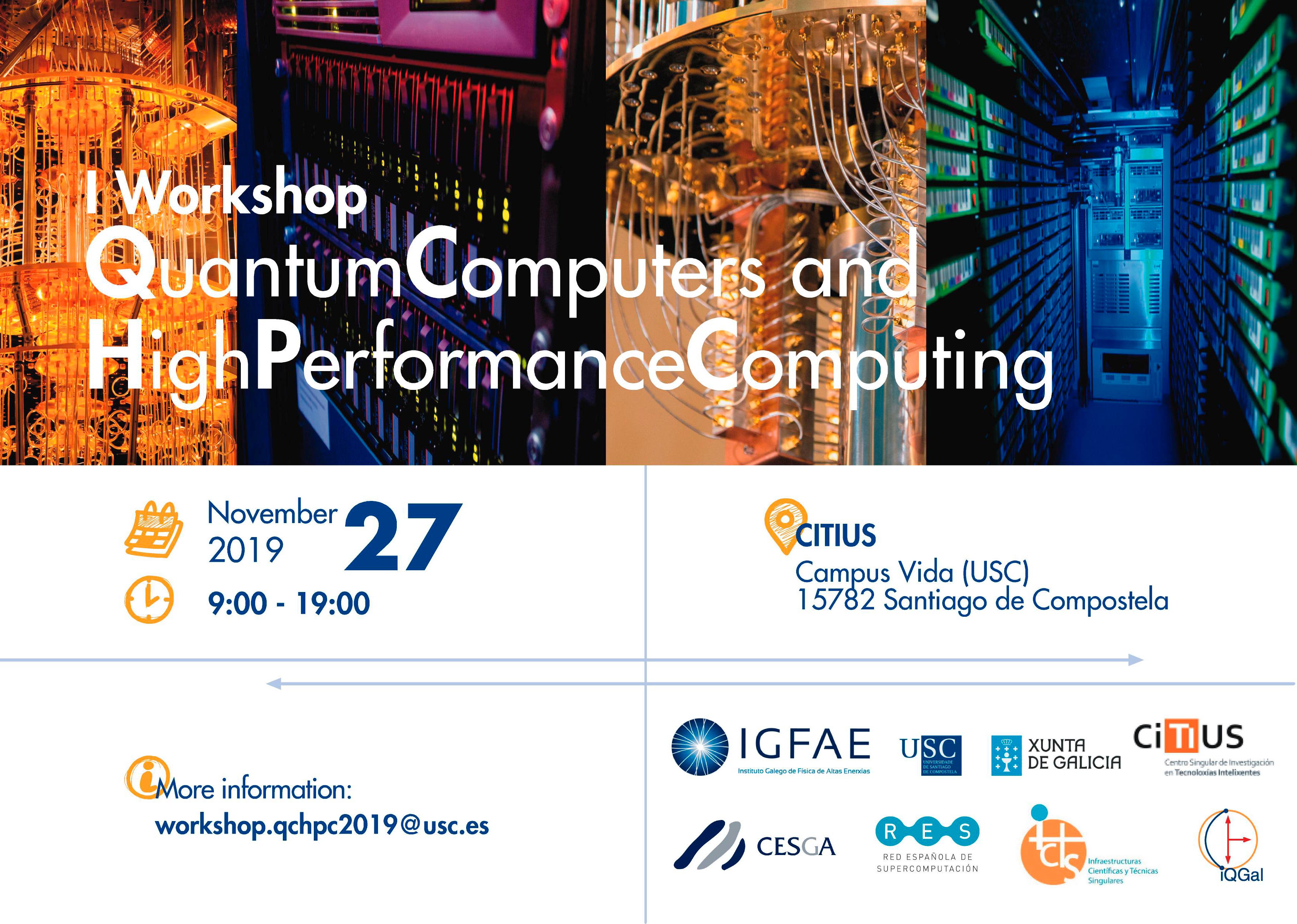
 REGISTRATION. Sorry, the registration is complete. Thank you for your interest
REGISTRATION. Sorry, the registration is complete. Thank you for your interest  Quantum Machine Learning is one of the possible candidates to get profit from Quantum Computers. Currently, many of the algorithms use classical-guided training on top of quantum circuits, to obtain the right parameters of the applied gates. On this presentation, an experience about the use of Quantum Machine Learning techniques for regression of synthetic cases on current Noisy Intermediate-Scale Quantum (NISQ ) computers will be presented, discussing the effects of the noise on the results.
Quantum Machine Learning is one of the possible candidates to get profit from Quantum Computers. Currently, many of the algorithms use classical-guided training on top of quantum circuits, to obtain the right parameters of the applied gates. On this presentation, an experience about the use of Quantum Machine Learning techniques for regression of synthetic cases on current Noisy Intermediate-Scale Quantum (NISQ ) computers will be presented, discussing the effects of the noise on the results. I will describe the research I have developed in the QUTIS Group at the University of the Basque Country, and since past July at the Universidad de Sevilla, on the topic of artificial life and machine learning with quantum technologies. Among other things, I will describe an experiment of quantum artificial life on the IBM cloud quantum computer, and a proposal and quantum photonics experiment, in collaboration with a group in Hefei, China, of quantum reinforcement learning for state estimation.
I will describe the research I have developed in the QUTIS Group at the University of the Basque Country, and since past July at the Universidad de Sevilla, on the topic of artificial life and machine learning with quantum technologies. Among other things, I will describe an experiment of quantum artificial life on the IBM cloud quantum computer, and a proposal and quantum photonics experiment, in collaboration with a group in Hefei, China, of quantum reinforcement learning for state estimation. In recent years, topological effects have found a variety of
remarkable developments in quantum computation.
A conceptual insight as to why topology plays a role in quantum
physics is presented. This review includes basic explanations
of how topology is a solution for quantum information and
computation. The impact of these applications on
quantum technologies will be addressed.
In recent years, topological effects have found a variety of
remarkable developments in quantum computation.
A conceptual insight as to why topology plays a role in quantum
physics is presented. This review includes basic explanations
of how topology is a solution for quantum information and
computation. The impact of these applications on
quantum technologies will be addressed.
 In order to harness the power of quantum computing, we developed an open source framework with an aim of comprehensiveness: from facilitating research to providing access to real NISQ devices through IBM Q. In this talk, we explore the Qiskit software stack, focusing on specific use cases and in the open approach of this quantum journey: not only how can Qiskit help you, but how can you help Qiskit.
In order to harness the power of quantum computing, we developed an open source framework with an aim of comprehensiveness: from facilitating research to providing access to real NISQ devices through IBM Q. In this talk, we explore the Qiskit software stack, focusing on specific use cases and in the open approach of this quantum journey: not only how can Qiskit help you, but how can you help Qiskit. Javier Más Solé (IGFAE – USC)
Javier Más Solé (IGFAE – USC)  Tomás Fernández Pena (CITIUS – USC)
Tomás Fernández Pena (CITIUS – USC)  Andrés Gómez Tato (CESGA)
Andrés Gómez Tato (CESGA) 
